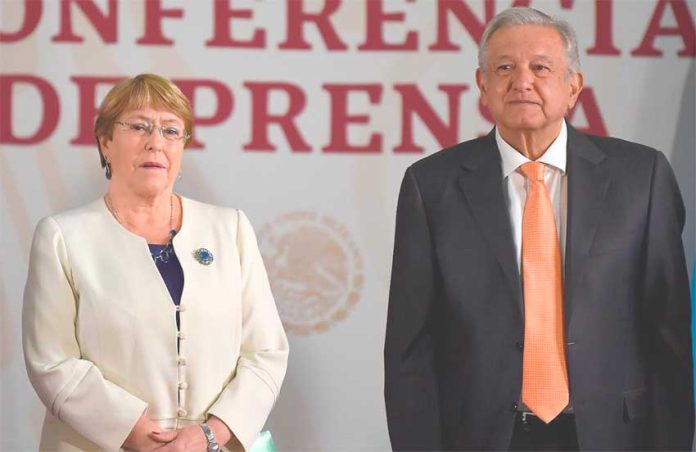The homicide rates recorded in Mexico since 2006 are similar to those of a country at war, the United Nations High Commissioner for Human Rights said at the conclusion of a five-day visit to Mexico.
Former Chilean president Michelle Bachelet told a press conference that she was surprised by the magnitude of the security crisis that Mexico is facing.
“What I’ve found has been a surprise. The Ayotzinapa case [of 43 students who disappeared in Guerrero in 2014] is certainly well known but the 40,000 missing persons wasn’t something that was so clear to me, nor the 26,000 unidentified bodies or that almost 10 women are murdered every day. I knew about the violence but I didn’t have an idea of the extent,” Bachelet said.
Since former president Felipe Calderón initiated a militarized public security strategy shortly after he took office in late 2006, there have been more than 250,000 homicides, and 2018 was the most violent year on record.
In addition to making the war analogy, Bachelet said the high homicide rates were evidence of the need for a comprehensive, long-term solution to violence, adding that the new National Guard could be a large part of that solution.
“The creation of the National Guard could open the opportunity to create a new civilian police force capable of fighting the overwhelming challenge of organized crime,” she said.
She also said that weak rule of law in Mexico contributes to the epidemic of violence.
“The truth is you have laws for everything,” Bachelet said. “There isn’t a lack of laws, but rather a need to implement them.”
However, she expressed confidence that the new attorney general’s office (the Fiscalía General de la República has replaced the the Procuraduría General) will be an autonomous institution capable of carrying out competent criminal investigations while guaranteeing human rights.
Earlier yesterday, the high commissioner and President López Obrador signed an agreement to allow the UN department to assist in human rights training for National Guard members.
“Experience shows us that you can’t have security without full respect for human rights and you can’t enjoy human rights without security,” Bachelet said.
López Obrador said he will announce the commander of the National Guard Thursday as well as details about its size and how it will be deployed. He described the human rights agreement with the United Nations as a historical achievement.
The president said in February that the new security force will conduct itself in a way similar to United Nations peacekeepers, pledging that “human rights will be respected.”
The force will be made up of military police from the army and navy as well as Federal Police officers.
A range of non-government organizations have criticized the creation of the National Guard, arguing that it will only perpetuate the failed militarization model that has contributed to the high murder rates.
Bachelet sidestepped questions yesterday about the force’s essentially militarized nature.
Source: Milenio (sp), Associated Press (en)
